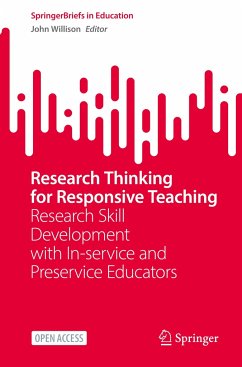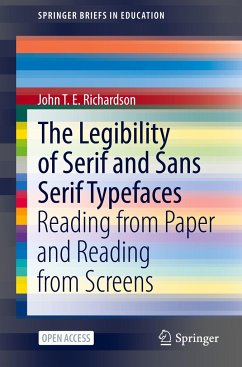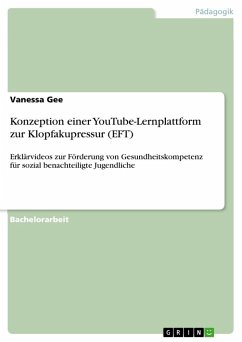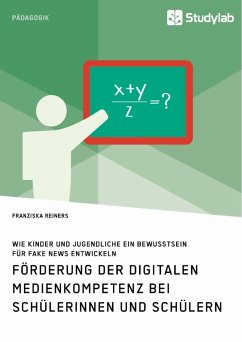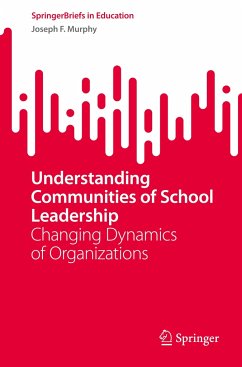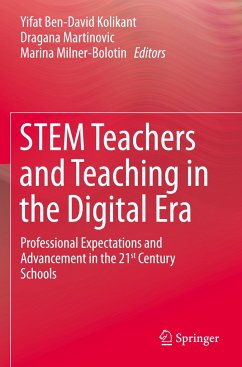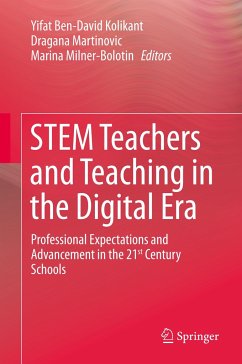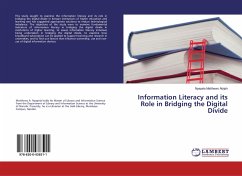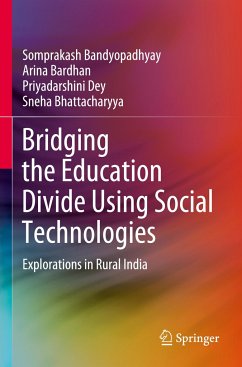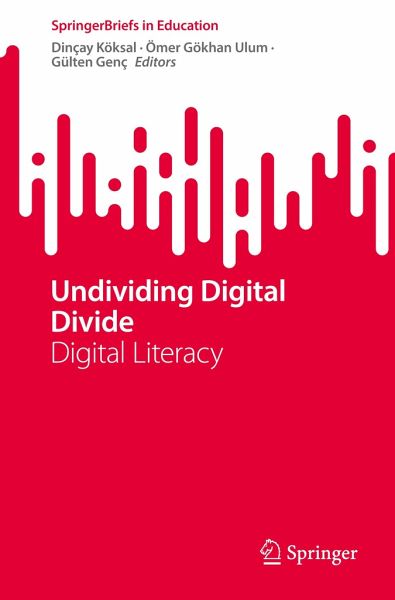
Undividing Digital Divide
Digital Literacy
Herausgegeben: Köksal, Dinçay; Ulum, Ömer Gökhan; Genç, Gülten

PAYBACK Punkte
19 °P sammeln!
This book problematizes digital divide with critical lens by focusing on education in general and specifically second language education with an emphasis on the context of Turkey based on sound methodologies and robust theories of modernity, postmodernity, post-structuralism and post-method framework. In line with this conceptualization, critical thinking skills, social dialogue, collaboration, accessibility and digital literacy have been widely discussed empirically and prioritized in this book. In addition, social injustice, digital inequality, gender gap, economic disparity, demographic dif...
This book problematizes digital divide with critical lens by focusing on education in general and specifically second language education with an emphasis on the context of Turkey based on sound methodologies and robust theories of modernity, postmodernity, post-structuralism and post-method framework. In line with this conceptualization, critical thinking skills, social dialogue, collaboration, accessibility and digital literacy have been widely discussed empirically and prioritized in this book. In addition, social injustice, digital inequality, gender gap, economic disparity, demographic differences and knowledge divide have also been addressed. EFL teachers and pre-service teachers as cultural workers have been incorporated into the studies to critically reflect upon digital divide in Turkey. The views of teachers and learners at a socio-economic disadvantage emanating from socio-political issues have been addressed and foregrounded. The digital divide and inequalities that COVID-19pandemic has produced have also been emphasized. The context of Turkey where digital divide has been prevalent during COVID-19 pandemic is believed to inspire researchers specializing in digitalization and digital education. The strategies, problems, effects and solutions have been presented. This book presents a reliable source to students, teachers and academics in education and second language education as well as social scientists and policy-makers across the globe.





